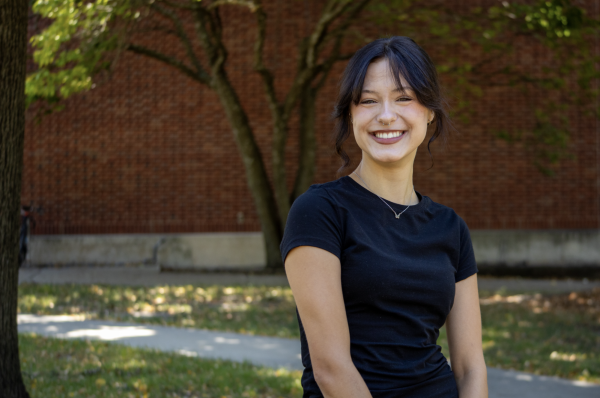Politics can be messy. In a world where everything is so divisive, they become another factor in deciding where to go to college. For the current generation of college-age students, the political leanings of an area can drastically affect the decisions they make regarding their futures.
According to a 2023 study conducted by the Art and Science Group, one in four students struck colleges from their search lists exclusively due to the politics of the state in which they were located. The study found that 31% of students who self-identifed as liberal based their decisions solely off of state politics. However, conservative and moderate students were close behind, at 28% and 22% respectively.
“We have very savvy students here at Drake,” said Chrystal Stanley, the director of Career Services at Drake. Stanley encouraged students to take all factors into consideration when deciding where to go after graduation, including workplace culture and the values of their future employers.
“Over the last five years, right around 50% of our students choose to stay in Des Moines,” Stanley said, noting that sometimes factors like family and job security weighed more heavily on students’ minds than political climate.
Personal safety is a key factor for many in deciding where to live. It has become an even bigger factor recently for many queer students in Iowa, affecting not only where they choose to go to college, but also influencing whether they stick around after graduation.
“Part of the reason I wanted to get out of Iowa was because I’ve been here my whole life and I wanted a change,” said President of Drake Rainbow Union Kenji Sazawa Bachmann. “But I definitely wouldn’t have felt as strongly about that if I didn’t feel like Iowa politics have deteriorated over the past few years.”
As of Jan. 30, 2024, 13 bills targeting the LGBTQ+ community have been introduced into the Iowa legislature. According to Sazawa Bachmann, while this action is frightening, it should not come as a shock.
“It’s a good thing that these underlying biases have become more explicit, so that they don’t fester and influence politics without anyone noticing,” said Sazawa Bachmann. “[I] hate that the explicit messaging has allowed the combative rhetoric to spread so much. [Queer students] just want to live, but instead our existence is politicized.”
Sazawa Bachmann was quick to remember a time when Iowa politics was less hostile, noting that the state has historically been considered a swing state in major elections. However, that changed in 2016, when Donald Trump won the state by a margin of nine percent. Since this pivotal moment in state politics, the state has remained overwhelmingly red.
As opposed to similarly politically aligned states, abortion is currently legal in Iowa through 22 weeks of pregnancy, but it has been a contested topic since Roe V. Wade was overturned by the U.S. Supreme Court in June of 2022. Its current legality is contingent on a state supreme court ruling in July of 2023, when a judge blocked a bill signed by Gov. Kim Reynolds that would ban abortion after six weeks.
The overturning of Roe V. Wade was also a monumental moment for college enrollment. According to Inside Higher Ed, states with looser abortion laws saw a drop in conservative enrollment, while states with harsher abortion laws saw lower levels of liberal enrollment. In a red state like Iowa, where abortion laws are constantly subject to change, access to reproductive freedom can make or break a student’s college choice.
Student organizations offer a place for politically like-minded students to come together and get involved regardless of state politics, offering chances to speak up about issues important to them. Dania Larios, a first-year involved with the Students for Reproductive Justice group at Drake, explained that the organization has helped her learn about and get more involved with local politics.
“[The purpose of SRJ] is to spread awareness and be able to have a space for people to talk it out with each other if we don’t have anybody else to talk to about it,” Larios said.
Whether or not politics are the ultimate deciding factor in a students’ college experience, there are many opportunities for students to get involved in local politics, regardless of their own stance. In such a divisive climate, spaces like this are essential to the personal development that is characteristic of the American college experience.








